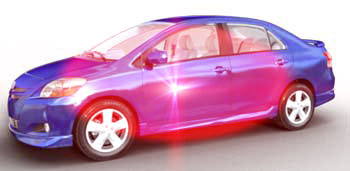Telematics are either a boon or a curse, depending upon your point of view.
The benefits
The theory sounds great. You have a device in your car that can monitor everything about your use of it; where you drive to, at what time of day, at what speed, and in what manner. If you brake hard, accelerate hard, corner hard, all these misdemeanours are detected. The box knows what the speed limit is on the road you"re on so every speeding infraction is recorded. You get access to a full report of how, where and when you have driven, and you are judged on these criteria rather than such arbitrary criteria as your age, sex or driving experience.
Good drivers can be rewarded with cheaper insurance policies, bad ones penalised. No more careful, conscientious young drivers lumped in with the irresponsible tearaways, no more middle-aged vicars meandering sedately around their local country roads paying the same as the lunatic who tears around those same roads at 3am on two wheels, waking up the residents and frightening the horses.
The drawbacks
On the face of it, a sensible way of tailoring insurance premiums to individual drivers. But there are drawbacks:
For a start, these devices cost money. They have to be fitted by skilled personnel, and then removed by similarly skilled people if they break down, you sell your car, or change insurer. The costs of all this have to be paid upfront, or they are factored into the premium.
In theory good drivers will benefit from a reduction in premiums. However the converse is also true. Most insurers reserve the right to not only increase premiums but also actually withdraw cover completely if in their judgement the quality of driving justifies it. This could be a frightening prospect; there are few drivers who"ve never exceeded the speed limit or gone round a corner a little too quickly but most of us get away with it most of the time.
Having a recorder in the car could result in the possibility of losing insurance cover and not only having to go to the expense of taking out the spy device but also trying to find alternative cover after an insurer has withdrawn your insurance.
Privacy concerns
This can be looked at in a different way of course. Many of us slip into bad driving habits without even noticing it and having this brought to our attention could be a good thing. The near certainty of being punished for bad driving should encourage better driving standards all round and there would be many parents of young drivers who would see this as a major advantage. However, some may see a creepy side to all this. In the era of Google and Facebook, when information about our every move online is monitored, recorded and sold on to every Tom Dick or Harry is perhaps not the best time to worry about personal privacy, but some of us will still object to comprehensive details of just where our cars were at any given time being recorded and stored on an unnamed computer somewhere. Who will see this data? What will they do with it? Who will they sell it to? Could the information be used against us in criminal prosecutions, or divorce petitions? Will newspaper reporters plaster our movements over the front page?
We have a government which would love to be able to monitor us even more than it does already through surveillance cameras linked to sophisticated databases and many people may feel threatened by this, even though they can probably already be tracked through their mobile telephones without them even realising it.
Will we have no choice, in the end?
It is early days for Telematics and whether or not they will lower insurance premiums in the future has yet to be seen. For many younger drivers there may be little choice anyway since a lot of the cheaper insurers are insisting on their usage. Perhaps we will all be obliged to use them in future; roads will become much safer but yet another of our freedoms will have been eroded.
